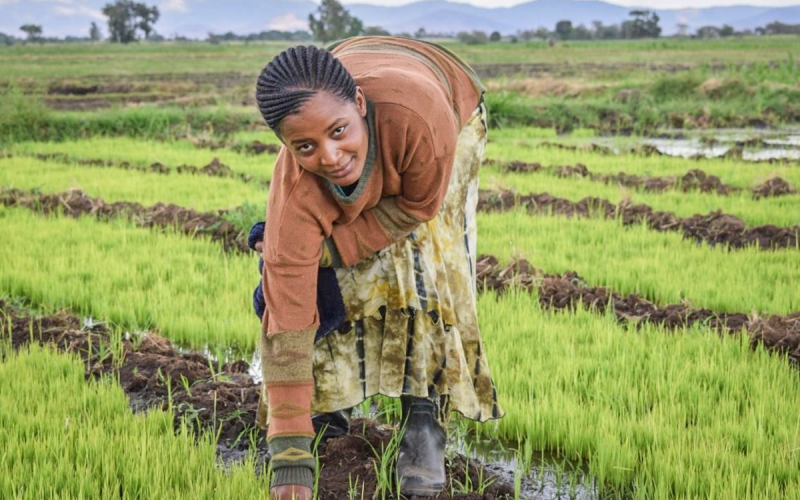Before rice farming, most girls were married off at an early age in Babati. Rice farming exposed the Babati population to knowledge through education. This exposure was a starting point for woman empowerment in Babati, education for girls and financial security for rice growing mothers that trickled down to their daughters. "I am one of them, first as a daughter and now as a mother,” says Mary Temu, Magugu Ward extension officer in Babati.
In 1994, Mary got a chance to study at Kilimanjaro Agriculture Training Center (KATC) to attain a rice cultivation certificate. After the training she joined the District Agriculture Irrigation and Cooperative Office (DAICO) as an extension officer and has been ever since. Having started off with supervising three farmers, the numbers have since increased, her responsibility growing with them.







